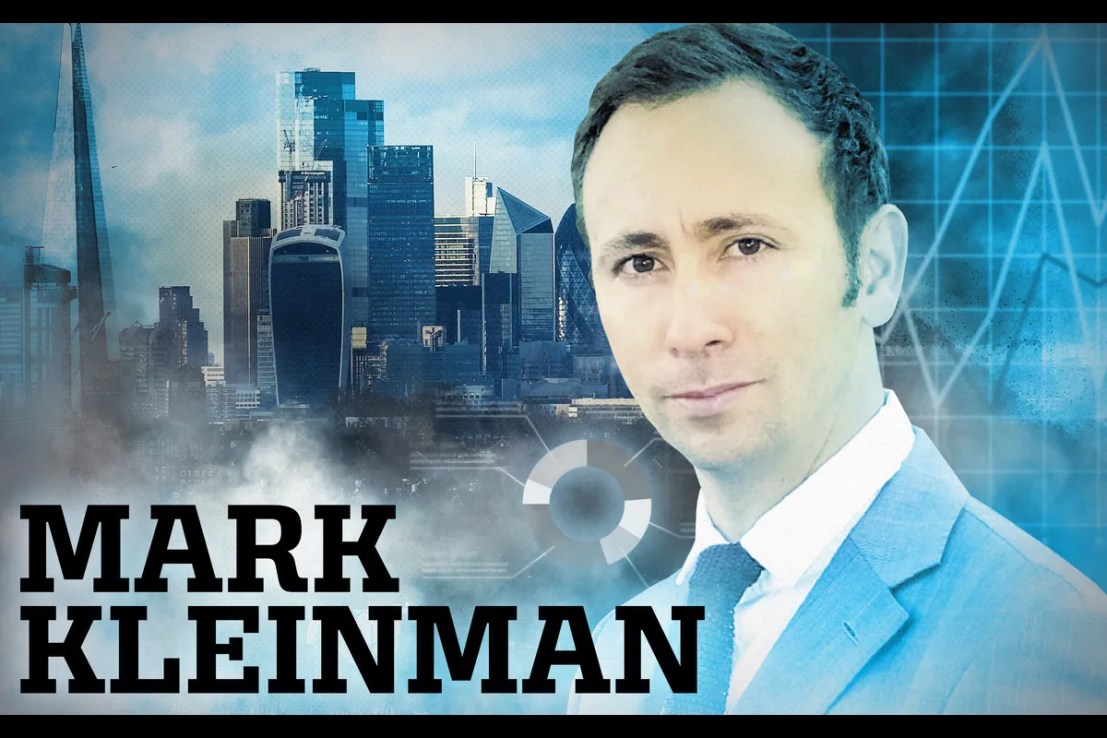Mark Kleinman is Sky News’ City Editor and the man who gets the Square Mile talking in his weekly City AM columnIs it Rathi vs Woods in race to be next governor?And so it came to pass. A month after I wrote in this column that Nikhil Rathi was likely to stay on as chief executive of the Financial Conduct Authority after all, up popped Rachel Reeves, the chancellor, to announce that he had indeed been reappointed for a second term in the job.The statement confirming his extended tenure read like a mutual love-in.
Rathi, Reeves said, had been “crucial in this government’s efforts to reform regulation so it supports growth and boosts investment – I am delighted he will be continuing his leadership of the FCA. “We want the FCA to go further and faster to deliver this government’s Plan for Change and we look forward to continuing to work together to achieve this.”For his part, Rathi said he was “honoured to be reappointed by the chancellor”.

“The FCA does vital work to enable a fair and thriving financial services sector for the good of consumers and the economy. “I am proud of the reforms we have delivered to support growth, bolster operational effectiveness, set higher standards and to keep our markets clean and open. Rathi’s statement was slightly equivocal, in that he had actively sought an exit from the FCA in the form of an application for the post of Cabinet Secretary last year.
Nevertheless, the fact that he is now so clearly aligned with the government’s deregulatory push suggests he will be a valuable asset to Reeves. Tensions which arose over the FCA’s revised approach to enforcement – dubbed naming and shaming – have been banished after the watchdog caved in to industry and political pressure. Expect that to become a pattern.
That leaves a question over whether he, or Prudential Regulation Authority chief executive Sam Woods, are now better-placed to succeed Andrew Bailey as governor of the Bank of England in a few years time. Woods is a logical candidate for the second permanent secretary role going begging at the Treasury, but equally might seek a brief sojourn in the private sector first. Either way, that’s the next battle to watch out for in the orbit of financial regulation in Britain.
(British) Steel yourself for Starmer’s industrial strategyHow about this for joined-up government? Sir Keir Starmer, the prime minister, orders emergency legislation to protect the country’s last-remaining blast furnaces, thereby reportedly requiring the Royal Navy to be put on standby to ensure the delivery of sufficient supplies of coking coal to British Steel’s Scunthorpe steelworks. At the same time, Ed Miliband, the energy security and net zero secretary, is enacting plans that will decimate the North Sea oil industry and place tens of thousands of jobs at risk.That is, of course, a hugely oversimplified summary of two contemporaneous decisions taken by Starmer’s administration, but juxtaposing them highlights the short-termism of government and any sense of a coherent industrial policy.
In British Steel’s case, the presence – or spectre, since it’s now being depicted in a wholly negative light – of Chinese ownership has become the prism through which the urgency of a rescue mission has been framed in recent days.As one industry insider put it to me this week, one wonders whether the government would have been quite so motivated to mobilise its legislative and financial resources if either the company concerned had not been named British Steel, or its owner was not Jingye Group but a European, US or indeed private equity firm.In 2020, there were certainly few alternatives to selling to the Chinese company, other than costly long-term state ownership.
The Conservatives eschewed that, unsurprisingly, while Labour has seized the opportunity with alacrity. But to what end? The UK’s new industrial strategy, which Whitehall sources say will be published in June, is an opportunity to provide genuine coherence in its outlook for the future of the British economy. Don’t hold your breath.
To arrive better than to travel for buyout industryTo travel, it’s said, is better than to arrive. Try telling that to the private equity owners of a multitude of travel companies whose destinations – in the form of exiting their investments – look far off over the horizon.In recent weeks, a string of travel industry assets have limped off the auction block, unable to find a suitor willing to whisk them off for the honeymoon of their dreams.
Most notably, the sale of a controlling stake in Loveholidays – backed by Livingbridge – has fallen apart after months of talks with prospective bidders.Similarly, Audley Travel, owned by 3i, has abandoned a process in which L Catterton was the last bidder standing after it had seen off competition from Advent and TPG. And the list goes on.
Fellow buyout firm Duke Street appears to be faring better with an auction of Great Rail Journeys, which is being handled by bankers at Harris Williams. Apollo-backed Travel Corporation and Vitruvian, the private equity firm, are said to be among the remaining bidders.While many of the travel industry players backed by financial sponsors enjoyed a post-Covid bounce, fuelling optimism of bumper disposal proceeds for their owners, many are too undifferentiated to have sustained those sales surges.
Like an unwanted travel companion, the industry’s private equity backers are finding the delays to offloading their baggage interminable..
Top

Mark Kleinman: Is it Rathi vs Woods in governor race?

Mark Kleinman is Sky News’ City Editor and the man who gets the Square Mile talking in his weekly City AM column Is it Rathi vs Woods in race to be next governor? And so it came to pass. A month after I wrote in this column that Nikhil Rathi was likely to stay on as chief executive [...]











